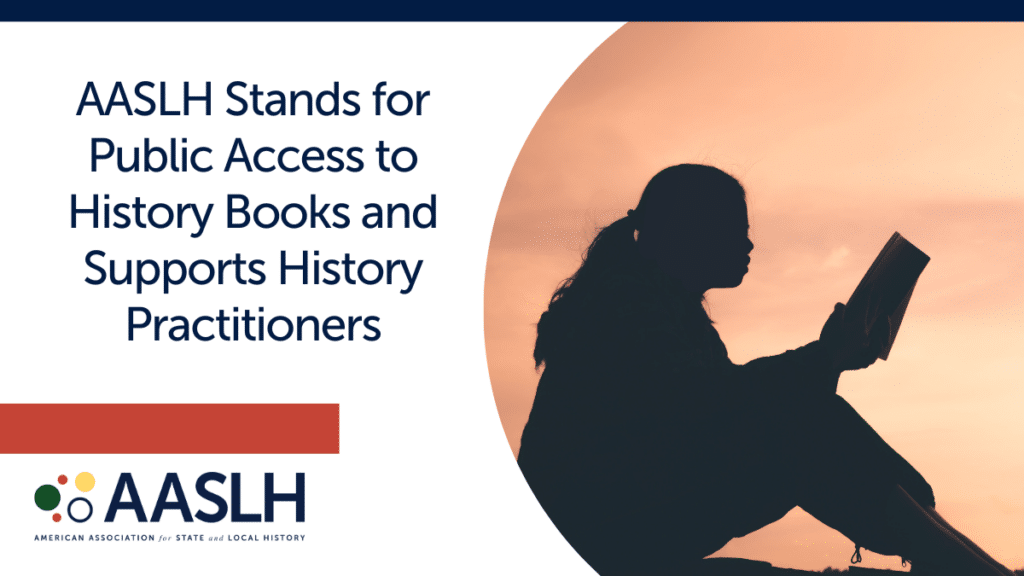
Over the past few years, a small but vocal group of Americans have attempted through various means to limit public access to full, evidence-based tellings of American history at museums, historic sites, libraries, and schools. This troubling trend intentionally undermines public knowledge and prevents Americans from engaging with the full evidence of our nation’s past.
The most recent example of this trend comes from Texas. A campaign began to eradicate what some viewed as “woke” ideology and educational materials from state historic sites. The campaign questioned fiction and nonfiction books on sale at two state historic plantation sites’ gift shops. They sent to select Texas Historical Commission staff and board members a list of specific titles, which included books on slavery and racism, and questioned the focus of an orientation video. The Texas Historical Commission which manages the sites, did remove several books from sale, in a process they publicly stated had already been ongoing as part of a months-long inventory review. The timing was such, however, that the complainant claimed victory. You can read more about the episode from Texas Monthly.
The call for the removal of these books about our shared, diverse, and sometimes difficult history is something we need to be on guard against. In the U.S., approximately one-third of the nation’s more than 21,500 history organizations are operated as part of government agencies, making them particularly susceptible to these kinds of pressures. This activity threatens the independence of historical organizations to put forward complete and accurate interpretations of our shared history.
The American Association for State and Local History (AASLH) believes that engaging with the full sweep of our nation’s history helps us make progress toward justice in American society. Partisan efforts to narrow the range of perspectives offered by history organizations are detrimental to everyone. They obscure Americans’ ability to critically engage with our history, limit opportunities for continued exploration of the past, and embolden future efforts to censor historical evidence that a small group finds politically objectionable. AASLH condemns partisan efforts to interfere with the open and honest educational and interpretive efforts of history organizations nationwide and encourages everyone to recognize the danger of similar campaigns to limit public access to whole history.
Finally, AASLH offers our support for history practitioners thrust into challenging circumstances during these polarized times; we hope you will as well. Political and cultural divisions in America today pose great challenges to the history field. Although research shows that there is broad public support for a full and honest portrayal of American history, bad faith actors continue to politicize interpretations that widen our perspective on the past. As a community of practice, we must not forget about the needs of history doers endeavoring to operate with integrity in this difficult environment.
To learn more about research, strategies, and case studies related to doing history in polarized times, join us for a virtual summit on February 8 and 9. Learn more and register here.
After AASLH originally posted this statement on December 14, 2023, Texas Monthly updated its article on January 27, 2024, to add additional context. (You can view those changes here.) On March 21, 2024, we updated our statement to incorporate the new information.



